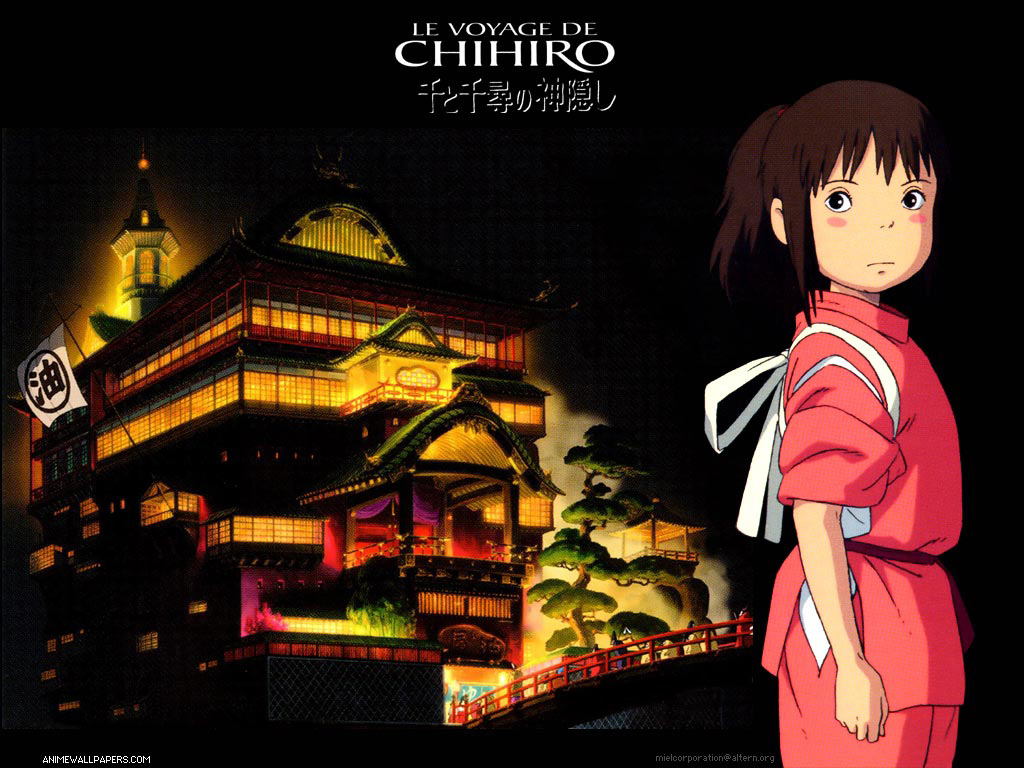Written and Directed by: Hayao Miyazaki
Spirited Away is one of the impeccable movies I have ever seen. The plot was fantastic and full-bodied. Each character was given so much personality, even the little soot spiders weren’t treated as two-dimensional!
This box-office hit Japanese animated movie reflects the culture and beliefs of the Japanese people. Even at modern times, there are still who believed in kami, a Japanese word for the spirits, natural forces, or essence in the Shinto faith. Even here in the Philippines, Filipinos also have this similar beliefs about spirits dwelling around the surroundings. Some them guard those century-old trees or even inhabit those long abandoned houses or buildings.
There are several significant themes presented in the movie.
In Spirited Away, every character is a mix of good and bad qualities and actions.
Even those who seem good at first, such as Haku and No-Face, have their own share of evil qualities. By the same token, those who seem bad in the beginning, such as Zeniba, Kamaji, and Lin, become instruments to Chihiro’s escape. Chihiro herself is extremely unpleasant at first, and she reveals her better nature only after she becomes Sen. Spirited Away’s blurred line between good and evil is a much more accurate reflection of the real world outside the film. In the end, evil is not vanquished but pushed aside as characters make choices that weaken bad influences.
Entering the adult world is a substantial and shocking transition for some of the characters in Spirited Away. Idleness is a luxury of childhood—Chihiro lies in the backseat while her parents drive, and Boh lolls among soft pillows while his mother goes about her daily business. Neither Chihiro nor Boh is capable of doing anything independently, nor does either know how to effectively ask for what they want. Whining and complaining are the methods they know best, but, for Chihiro at least, these have no place in the spirit world.
Though hard work is not the only element of the spirit world that transforms Sen into a stronger, more capable person, it certainly helps her learn to deal with problems maturely. The shock of entering the working world is a theme rarely dealt with at this age level, which gives Spirited Away one more mark of distinction.
Food has enormous power in Spirited Away, and it can be a force of either good or evil. At the beginning of the movie, food sets Chihiro’s entire adventure in motion. When Chihiro’s mother and father gorge themselves on the food they find in the abandoned amusement park, they turn into pigs, and Chihiro must save them. In the spirit world, gluttonous No-Face can’t fill himself up no matter how much he eats. Food and greed are always a bad combination, but food is also a source of comfort and community.
Lastly, this examines the consequences of actions that alter the natural world in destructive ways. Haku and the ancient river spirit represent these consequences most dramatically. Haku lost his home because his river was paved over to build an apartment complex, and the ancient river spirit at first seemed to be a stink spirit because it’s so polluted. The abandoned amusement park at the beginning of the movie is linked to the issue of land management. Chihiro’s father notes that many theme parks were built in Japan during the boom times, and they were abandoned when the economy slumped. As a result, unsightly, false landscapes dot the countryside. Self-pollution, a more personal aspect of environmentalism, occurs through No-Face’s and Chihiro’s parents’ over-consumption of food. Haku, too, is polluted by Yubaba’s slug. Environmentalism is a familiar motif in Miyazaki’s films, and critiquing the consequences of development and pollution through animated characters sheds new and unusual light to these issues.
Spirited Away is simply a modern masterpiece, easily one of the Top 10 films of the new millennium. It works on a multitude of levels; a social commentary on Japan, a homage to ancient Japanese rituals and mythology and a moral film for both children and adults.
RATING: 9.3 / 10
RATING: 9.3 / 10




This is one of my favorites produced by Studio Ghibli you should also feature Princess Mononoke on your blog! It's real great!
ReplyDeleteI will, I will. Thanks Robi!
Delete